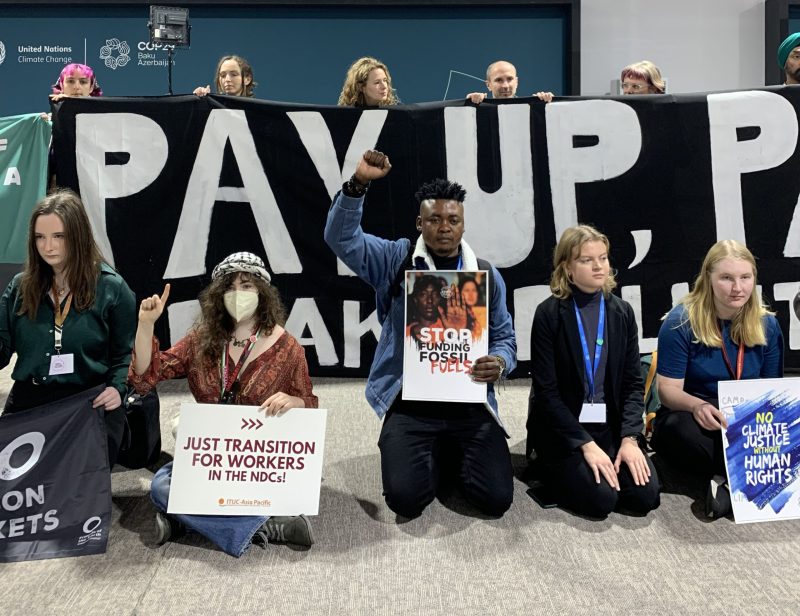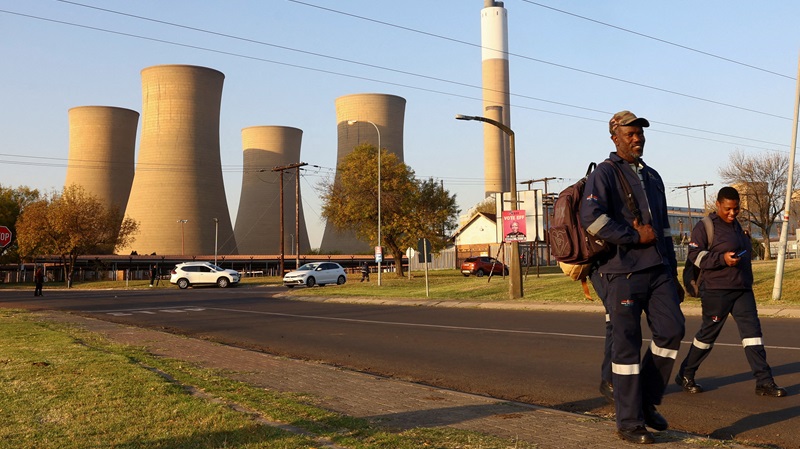Developing states and labour activists say a fair global shift away from fossil fuels requires a firm UN plan for international support
Trade unionists and campaigners seeking a fair deal for workers whose jobs will be affected by the transition away from planet-heating fossil fuels are placing their hopes in next year’s UN climate summit in Brazil following a disappointing outcome at COP29 in Azerbaijan.
From coal mines and oil refineries to car factories and construction, the global shift to cleaner sources of energy will alter the nature of employment, leading to job losses in some sectors and creation in others, opportunities and risks in clean technology supply chains, and new threats and benefits for the communities where the changes are happening.
In a bid to share the pain and gain more equally, governments at the 2022 COP27 climate summit in Egypt launched a “Just Transition Work Programme” (JTWP). But so far it has delivered little – and talks on how the programme should proceed in practice ended without agreement at COP29 last month.
The Azerbaijan presidency running the talks instead focused on landing a new deal on climate finance for developing countries, and governments ended up delaying further discussions on the JWTP until the mid-year climate talks next June in Bonn and COP30 in Belém.
Tell us your top three climate issues for 2025! We’ll share the results in the New Year
Bert De Wel, global climate policy coordinator at the International Trade Union Confederation (ITUC), tagged this year’s Baku summit a “wasted COP” in terms of implementing the JTWP. He said just transition was not given the attention it deserves, noting that the interests of workers are often “kicked out or minimalised” at UN talks. “When there is reference to rights, they tend to leave out labour rights. We want to be mentioned too,” he added.
But others said no deal on just transition at COP29 was better than a bad deal.
Kenya’s Fatuma Hussein, who is the African Group’s lead negotiator on just transition, said she preferred the option of having “no outcome” than “putting the process at risk”. She told Climate Home that developed countries in Baku had avoided discussing finance, international cooperation and adaptation to climate impacts in the context of a just transition – and this was “the biggest problem”.
Telling developing nations, including those in Africa, that they must work towards just transition on their own would be “missing the point” and not delivering on the goals of the 2015 Paris Agreement, she added.
Right to develop
According to the International Labour Organization (ILO), climate change and extreme weather conditions affect 70% of the world’s economic sectors, with rising global temperatures and environmental risks harming businesses and workers through damage to property and productivity. It estimates that transitioning from fossil fuels to renewable energy would lead to about 6 million job losses but would in turn create around 24 million new jobs by 2030.
Under the ILO’s guidelines for a just transition to a low-carbon, climate-resilient world, the organisation calls for economic, environmental and social policies, as well as education and training, to help companies, workers, investors and consumers play a proactive role.
Climate campaigners and labour rights activists had looked – in vain – to COP29 to agree a work plan for governments to help them take the concrete steps needed.
According to the ITUC’s De Wel, the outcomes they were hoping for included provision of finance to implement national-level efforts to secure a just transition and guidance on preparing new national climate plans based on consultation with workers’ representatives and trade unions. Support is also required to put in place social protection systems for workers who might lose their jobs, as well as defining what the energy transition will mean for the future of employment and industrial development within countries.
“Systematising these things and taking lessons out of it for the whole group of countries – that’s what we want and recommend,” he said.
De Wel called for a broad global view of just transition that is not narrowly focused on Polish or German coal miners, for example, “without taking into account the robbery of minerals and materials from Africa” or denying the right of countries in the Global South “to have industrial development”.

Activists call for an end to fossil fuels, payment by polluters and a just transition for workers at COP29 in Azerbaijan, November 16, 2024. (Photo: Climate Home News/Megan Rowling)
Amos Wemanya, a campaigner with Greenpeace Africa, said Africa’s colonial history continues to pose development and economic challenges that fuel indebtedness and keep the continent mainly as a provider of raw materials to the rest of the world and a dumping ground for low-value-added products.
Wemanya said current global trade policies and finance flows worsen the structural socioeconomic and technological
Read More

